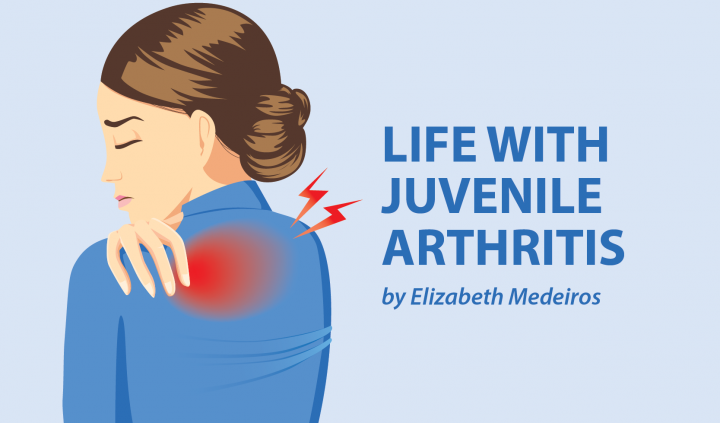As a mother of a child with juvenile arthritis (JA), my mum faced a lot of ignorant (and rude) comments. She’s been told kids don’t get arthritis, or that I don’t look like I’m in pain. People even implied at times that I was faking. I recall one school nurse giving me the “benefit of the doubt,” which did not go over well with my mum.
While those comments are always unwelcome, they especially hurt my mum. While other people saw a child who was seemingly healthy, my mum knew what I really went through. Even as an adult, my mum sees me as a little girl hospitalized due to pain. I’m still her “skinny Minnie” girl with baggy clothes, who lost too much weight when too sick to eat.
Parents of children with JA go through a lot. Besides the heartbreak of watching their child cope with pain, parents can sometimes feel like they’re constantly educating others about JA. While JA affects around 300,000 kids in the United States, many people still don’t believe kids get arthritis. Or worse, they make assumptions about what juvenile arthritis is. It can be extremely frustrating and lonely, but it doesn’t have to be with support.
Spread awareness
Growing up, I often wished that juvenile arthritis wasn’t a hidden disability. People questioned my diagnosis to my mum because I looked fine. Or, they would go on about how whatever disease they have is so much worse. And I recall getting more than my share of dirty looks when using a wheelchair out in public, especially if I got up or walked a short distance. Sometimes, my family and I just wanted a break!
While you can choose to simply ignore the side-eye looks, you could take it as an opportunity to advocate. One year, we did the Walk for Psoriasis (I have juvenile-onset psoriatic arthritis) and shared my story with friends and loved ones. It also showed them the crucial need for research, and many donated to our cause. I also knew many families who wore “kids get arthritis too” T-shirts and hats when their child used a wheelchair in public. It’s little things like that which help others learn!
Find other JA parents
As a teenager, I became friends with another girl with JA. Consequently, our mothers became friends. It helped my mum a lot to have someone to talk to who knew what it was like and share advice.
JA parents can find support through juvenile arthritis socials sponsored by charities like the Arthritis Foundation. Facebook is also an excellent resource for parent support groups. Whether you prefer in-person meetings or the convenience of online groups, having others to talk to can make a world of difference.
Let it go
A lot of people have a hard time believing children can suffer chronic pain. These assumptions aren’t usually meant to be hurtful — it can just be hard for people to imagine. Even after our best efforts to advocate, we can’t sway some people.
It’s hard, but sometimes we have to pick our battles. People make assumptions, and unfortunately, we can’t reach everyone. It’s better to spend our time and energy on people who seem like they could be convinced rather than on closed-minded people. The best you can do is stand firm for your child’s needs, and try to shake the nonsense comments off.
Learning over time
While I would like to say the rude comments ended when I became an adult, they didn’t. As a young adult, my mum and I still hear a lot of “she’s too young to be in pain.” But now we have had enough experience to know when to pick our battles. I would rather defend medical accommodations to my college professors than try to educate someone who thinks I’m a drama queen.
***
Note: Juvenile Arthritis News is strictly a news and information website about the disease. It does not provide medical advice, diagnosis, or treatment. This content is not intended to be a substitute for professional medical advice, diagnosis, or treatment. Always seek the advice of your physician or other qualified health provider with any questions you may have regarding a medical condition. Never disregard professional medical advice or delay in seeking it because of something you have read on this website. The opinions expressed in this column are not those of Juvenile Arthritis News, or its parent company, BioNews Services, and are intended to spark discussion about issues pertaining to juvenile arthritis.


